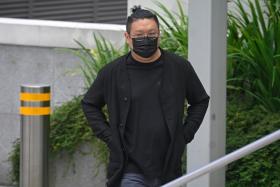Verbal abuse as dangerous as physical abuse, experts say
Verbal abuse can be as dangerous as physical abuse, with victims being driven to self-harm by the torment, said experts.
But the impending changes to the Protection from Harassment Act will make it easier for victims to get a protection order against their abusers.
Changes will include a new Protection from Harassment Court so victims need not shuttle between courts. Also, the forms and processes will be simplified and burden of proof reduced, which will help victims of emotional abuse (like Lisa), who find it hard to provide proof of the abuse.
Crucially, relief will also be granted more quickly.
Psychologist Carol Balhetchet said: "It is a great idea to make such processes more efficient and effective.
"It is hard enough to be a victim and having to prove that you are a victim is a double blow."
She added that victims of psychological and emotional abuse can feel guilty and embarrassed, or believe they deserved the abuse.
But making it easier for them to seek protection may encourage them to speak up.
She said: "Physical hurt is bad enough, but it is the emotional and psychological trauma that will haunt the victims for a long time."
Lawyer James Ow Yong of Kalco Law said the measures are aimed at achieving a quicker response and reaching a wider range of victims, who will qualify for the court's expedited protection.
"Stiffer penalties send a strong message of deterrence. Increased public education and awareness of resources will allow affected persons to seek help before things get ugly," he added.
Family therapist Evonne Lek said victims often face challenges in seeking legal recourse and can face doubts among their friends and loved ones.
Frequently, they also doubt themselves and question their experiences.
She added that since verbal abuse leaves no visible scar, victims are often unable to provide sufficient evidence to the court.
Ms Lek said: "It eats away at their self-esteem, and eventually, they believe the abusers and become convinced they are worthless."
Dr Balhetchet said many victims who do not seek help end up hurting themselves by drinking or smoking, or seeking a sense of community in dangerous places or gangs.
She said: "The pain is so deep. They lose self-worth and unconsciously start to hate and harm themselves."
Ms Ashley Chua, programme executive at Aware's Women's Care Centre, said that more than half of its 593 calls regarding abuse last year involved verbal or psychological abuse.
She added that some victims might not see verbal abuse as "real" abuse.
Dr Balhetchet said such abuse can create a vicious cycle: "When children witness such behaviour and think that is how they can get their way, they might emulate this behaviour."
Abuse victims can contact Aware:
Women's Helpline: 1800-777-5555, 10am to 6pm, Monday to Friday
Sexual Assault Care Centre: 6779-0282, 10am to 10pm, Monday to Friday, or via WhatsApp 9781-4101
Aware also offers counselling, a free legal clinic and a befriender service on aware.org.sg.
Get The New Paper on your phone with the free TNP app. Download from the Apple App Store or Google Play Store now



